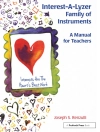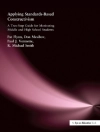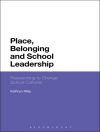In contemporary Turkey—a democratic, secular, and predominantly Muslim nation—the religious healer is a controversial figure. Attracting widespread condemnation, religious healers are derided as exploiters of the sick and vulnerable, discredited forms of Islamic and medical authority, and superstitious relics of a pre-modern era. Yet all sorts of people, and not just the desperately ill, continue to seek them out. After years of research with healers and their patients in working-class neighborhoods of urban Turkey, anthropologist Christopher Dole concludes that the religious healer should be regarded not as an exception to Turkey’s secular modern development but as one of its defining figures. Healing Secular Life demonstrates that religious healing and secularism in fact have a set of common stakes in the ordering of lives and the remaking of worlds.
Linking the history of medical reforms and scientific literacy campaigns to contemporary efforts of Qur’anic healers to treat people afflicted by spirits and living saints through whom deceased political leaders speak, Healing Secular Life approaches stories of healing and being healed as settings for examining the everyday social intimacies of secular political rule. This ethnography of loss, care, and politics reveals not only that the authority of the religious healer is deeply embedded within the history of secular modern reform in Turkey but also that personal narratives of suffering and affliction are inseparable from the story of a nation seeking to recover from the violence of its own secular past.
Inhoudsopgave
Introduction
Chapter 1. Medicine and the Will to Civilization
Chapter 2. Healing Difference at the Limits of Community
Chapter 3. Hagiographies of the Living: Saintly Speech and Other Wonders of Secular Life
Chapter 4. The Therapeutics of Piety: Ethics, Markets, Value
Chapter 5. A Malaise of Fracturing Dreams: The Care of Relations
Chapter 6. Healing Secular Life: Two Regimes of Loss
Conclusion: Fragment
Appendix: Genres of Healing
Notes
Glossary
References
Index
Acknowledgments
Over de auteur
Christopher Dole is Associate Professor of Anthropology at Amherst College.












